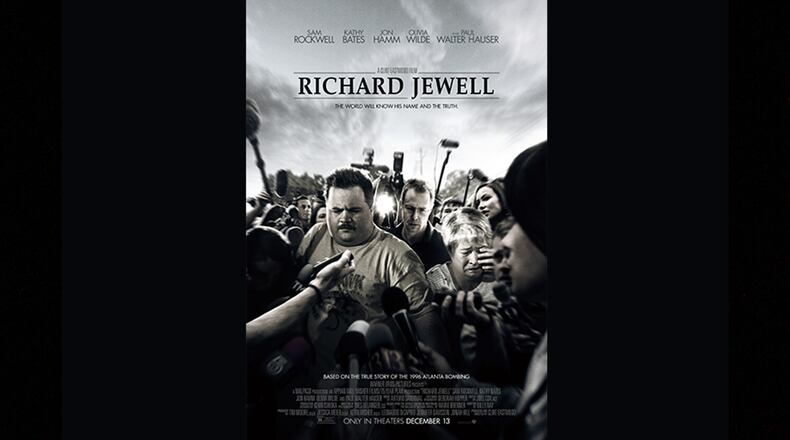A letter from Los Angeles-based law firm Lavely & Singer sent Monday on behalf of The Atlanta Journal-Constitution and Cox Enterprises, its parent corporation, takes strong exception to elements of the upcoming film “Richard Jewell,” particularly its portrayal of late AJC reporter Kathy Scruggs.
The movie version of Scruggs, played by Olivia Wilde, is depicted as someone who relies on illicit liaisons with sources to gain information.
“The AJC’s reporter is reduced to a sex-trading object in the film,” the letter says. “Such a portrayal makes it appear that the AJC sexually exploited its staff and/or that it facilitated or condoned offering sexual gratification to sources in exchange for stories. That is entirely false and malicious, and it is extremely defamatory and damaging.”
The letter, sent to director Clint Eastwood, screenwriter Billy Ray, Warner Bros. and other parties, demands a statement “publicly acknowledging that some events were imagined for dramatic purposes and artistic license and dramatization were used in the film’s portrayal of events and characters. We further demand that you add a prominent disclaimer to the film to that effect.”
In a statement, Warner Bros. called the letter's claims baseless.
The movie will be released on Friday. Paul Walter Hauser plays the late Richard Jewell, a security guard whose quick thinking saved countless lives the night a bomb exploded in Centennial Olympic Park.
Within days of the July 1996 bombing, investigators came to focus on Jewell. The AJC was first to report, accurately, that the FBI considered him a suspect. Authorities questioned Jewell, searched his and his mother’s belongings and kept him under round-the-clock surveillance before publicly clearing him about three months later.
Confessed serial bomber Eric Robert Rudolph is serving multiple life sentences. Olympics spectator Alice Hawthorne was killed the night Rudolph’s bomb exploded under a park bench and Turkish cameraman Melih Uzunyol suffered a fatal heart attack rushing to the scene.
The AJC was among numerous entities sued after Jewell was cleared, and the only one that didn’t settle. The litigation naming the AJC was dismissed in 2011, with the Court of Appeals concluding that the coverage was substantially true at the time of publication.
The letter sent Monday notes the legal outcome and lists other objections, including the movie’s depiction of the AJC’s reporting practices.
“Far from acting recklessly, the AJC actually held that story for a day to develop additional independent corroboration of key facts prior to publication,” it says. “Law enforcement sources confirmed to the AJC their focus on Mr. Jewell, and FBI activity had been visible at the Jewells’ apartment. The accuracy of the story had also been confirmed with an FBI spokesperson to whom the entire story was read before publication.
“In sum, the AJC acted responsibly and in accordance with appropriate journalistic standards,” it continues. “As such, the assertion in the film that the AJC relied recklessly on questionable sourcing is itself reckless.”
About the Author
Keep Reading
The Latest
Featured



